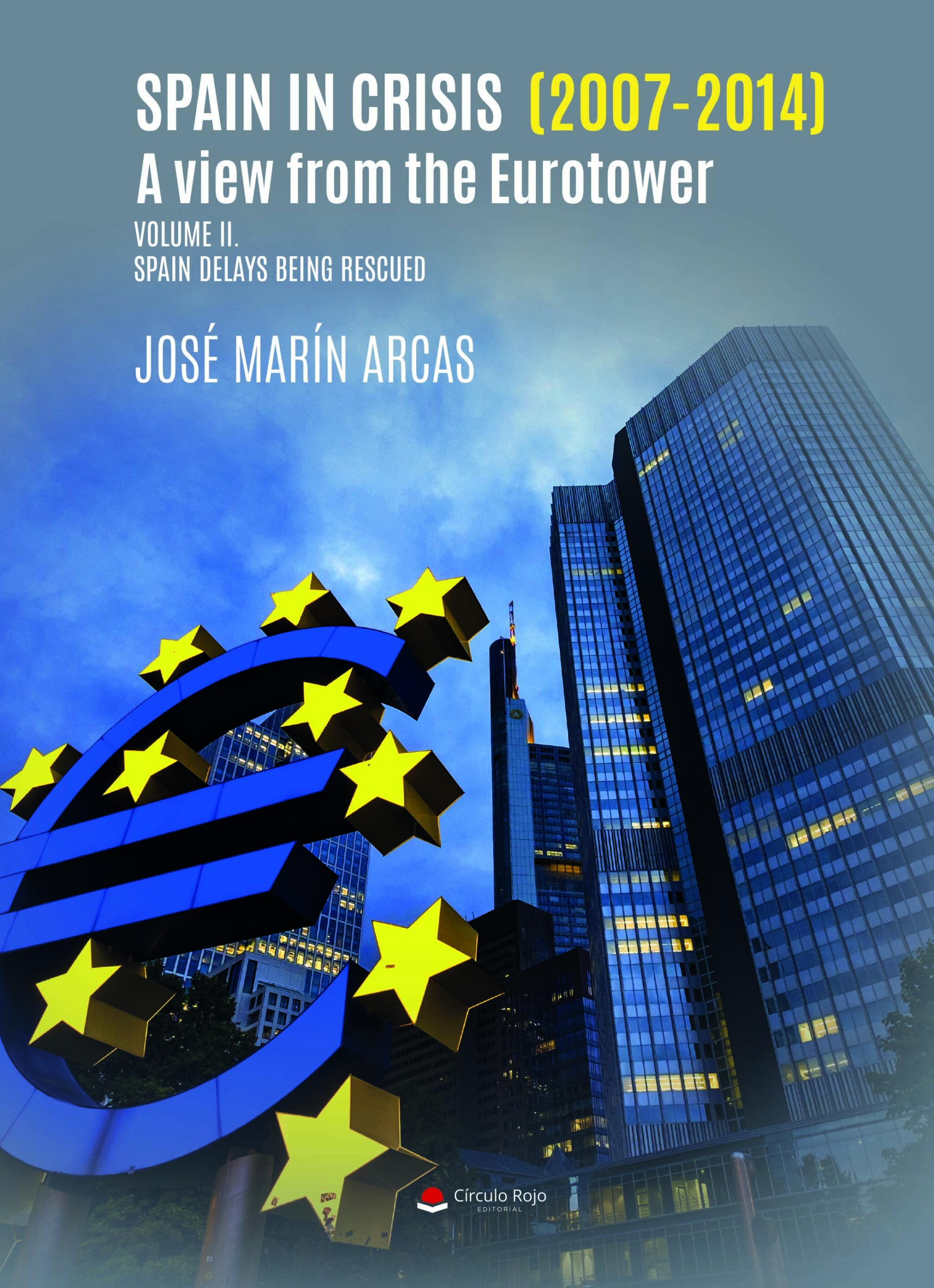Spain in crisis (2007-2014). A view from the Eurotower
This book offers in four volumes a detailed narrative of the crisis in Spain (2007-2014), from the perspective of
someone who followed it closely at the European Central Bank:
• Volume I. From the financial crisis to the sovereign debt crisis (2007-April 2010).
• Volume II. Spain delays being rescued (May 2010-July 2011).
• Volume III. Rescuing Spain (August 2011-July 2012).
• Volume IV. Overcoming the crisis (August 2012-2014).
This second volume narrates the unfolding of the sovereign debt crisis. When it erupted in Greece, the Spanish
economy was also at risk of being rescued, like Ireland and Portugal. President Zapatero’s U-turn announced in
May 2010 temporarily stabilized the situation, although the small reduction of the budget deficit, the partial
design of reforms and the slow progress in restructuring banks continued fueling doubts among financial market
participants.
In the autumn of 2010, A Franco-German agreement announcing the possibility of public debt cuts as part of
bailouts unsettled financial markets. As the ECB refused to continue financing the restructuring of the bankrupt
Irish banks with short-term credits, Ireland had to request a bailout. The sovereign debt crisis threatened Portugal,
whose fiscal policy to support the economy was proving counterproductive, and would request to be bailed out
by the spring of 2011.
The economic policies implemented by the Zapatero’s government were not working and the Spanish economy
was falling into a second recession. President Zapatero attempted to contain financial markets pressures by
following the lines of least resistance, until being forced to call early elections. By summer, with a worsening
crisis in Greece requiring a second bailout and the political uncertainty of a divided government in Italy, the only
hope of containing the crisis was ECB intervention in the debt markets. The Spanish economy was on its way to
being rescued.
Critiques:
“Jose Marín has published an excellent book which reflects his deep understanding of the complexity of European integration.
Highly recommended reading”. Otmar Issing, former executive board member and chief economist of the ECB.
“José Marin’s book is an essential document to understand the threefold crises in Spain and other European countries: the
economic recession, the financial crisis and the sovereign debt doom loop. Written by one of the most qualified witnesses, it is
based upon the first-hand description of the facts and a rigorous analysis of the fault lines of the economy in the period 2007-
2014. A must read!” José Manuel González-Páramo, former executive board member of the ECB.




